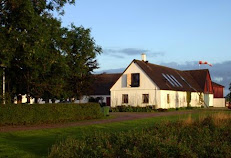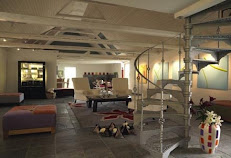In our strive to become environmentally type I citizens, we come across different issues that need to be negotiated. I work for an otherwise honorable and publicly respected airline, yet I´m not proud of all we do. Specially one thing that stand out is the hauling of heavy glass bottles of liquor around the world just because of current outdated Swedish tax legislation. A bottle of booze travel by air significantly more than you do, just for you to get it back home legally without tax. If you were informed about how this works, you would not enjoy the drink - for sure.
Roughly 1,5 kg of jet fuel was burned for each kg (one bottle) of liqour you receive. If the aircraft need to make an intermediate landing because of the weight of the tax-free load, this number will increase to about 4,5 kg. If your items also was air freighted to your departure/arrival airport, it might be yet another 1-2 kg.
Apart from being a significant load, a cabin filled with bottles represents a serious threat to passengers and crew in many ways. Continental had a severe turbulence encounter in spring 2009 and most personal injuries could be accounted to flying glass bottles in the cabin.
Bottles could be used as weapons by unruly individuals or terrorist hi-jackers. Note that you are not allowed to bring a blade or any scissors on board, but passengers may in some cases have up to 10 heavy glass bottles each. Also the liquid is mostly flammable and could add damage and reduce escape time in the event of an onboard fire.
Allowance of this system has to do with bad tradition, ignorant politicians and travelers, greedy airlines (all of them), and from an environmentally point of view, seriously flawed business idea from companies like Inflight Services - or possibly, actually probably - a combination of all five.
The solution is, as it often is in cases like this - political. I.e. allow for on-land tax-free sale at the departure airport on passengers return, and over a transition period give airlines kickback on assigned customers. Then harmonize tax legislation between countries, at least in Europe, and this and other tax-free traffic will stop or be minimized.
We believe this is already implemented in Norway.
Enjoy your flight and your drink - but please, stop this "so last year" stupidity.
Roughly 1,5 kg of jet fuel was burned for each kg (one bottle) of liqour you receive. If the aircraft need to make an intermediate landing because of the weight of the tax-free load, this number will increase to about 4,5 kg. If your items also was air freighted to your departure/arrival airport, it might be yet another 1-2 kg.
Apart from being a significant load, a cabin filled with bottles represents a serious threat to passengers and crew in many ways. Continental had a severe turbulence encounter in spring 2009 and most personal injuries could be accounted to flying glass bottles in the cabin.
Bottles could be used as weapons by unruly individuals or terrorist hi-jackers. Note that you are not allowed to bring a blade or any scissors on board, but passengers may in some cases have up to 10 heavy glass bottles each. Also the liquid is mostly flammable and could add damage and reduce escape time in the event of an onboard fire.
Allowance of this system has to do with bad tradition, ignorant politicians and travelers, greedy airlines (all of them), and from an environmentally point of view, seriously flawed business idea from companies like Inflight Services - or possibly, actually probably - a combination of all five.
The solution is, as it often is in cases like this - political. I.e. allow for on-land tax-free sale at the departure airport on passengers return, and over a transition period give airlines kickback on assigned customers. Then harmonize tax legislation between countries, at least in Europe, and this and other tax-free traffic will stop or be minimized.
We believe this is already implemented in Norway.
Enjoy your flight and your drink - but please, stop this "so last year" stupidity.





1 comment:
How true!
Post a Comment